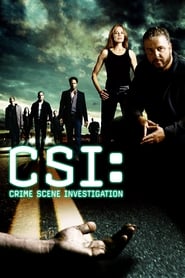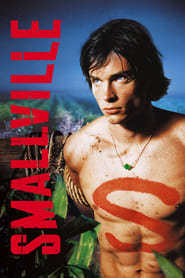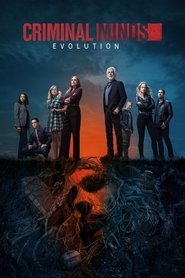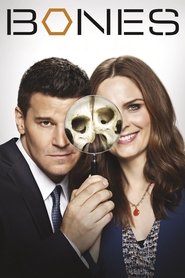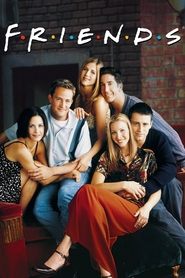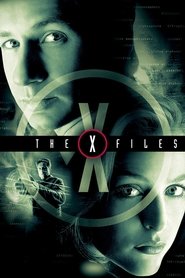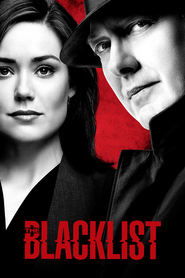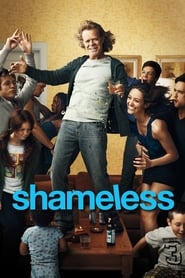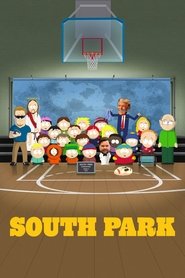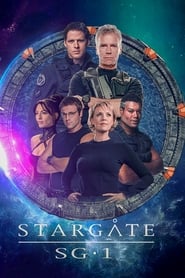Popular War TV Series on Tub Tv - Page 2
-
JUJUTSU KAISEN
2020
JUJUTSU KAISEN
2020
star 8.6Yuji Itadori is a boy with tremendous physical strength, though he lives a completely ordinary high school life. One day, to save a classmate who has been attacked by curses, he eats the finger of Ryomen Sukuna, taking the curse into his own soul. From then on, he shares one body with Ryomen Sukuna. Guided by the most powerful of sorcerers, Satoru Gojo, Itadori is admitted to Tokyo Jujutsu High School, an organization that fights the curses... and thus begins the heroic tale of a boy who became a curse to exorcise a curse, a life from which he could never turn back. -
CSI: Crime Scene Investigation
2000
star 7.6A Las Vegas team of forensic investigators are trained to solve criminal cases by scouring the crime scene, collecting irrefutable evidence and finding the missing pieces that solve the mystery. -
Modern Family
2009
Modern Family
2009
star 7.9The Pritchett-Dunphy-Tucker clan is a wonderfully large and blended family. They give us an honest and often hilarious look into the sometimes warm, sometimes twisted, embrace of the modern family. -
Smallville
2001
Smallville
2001
star 8.2The origins of the world’s greatest hero–from Krypton refugee Kal-el’s arrival on Earth through his tumultuous teen years to Clark Kent’s final steps toward embracing his destiny as the Man of Steel. -
Criminal Minds
2005
Criminal Minds
2005
star 8.3An elite team of FBI profilers analyze the country's most twisted criminal minds, anticipating their next moves before they strike again. The Behavioral Analysis Unit's most experienced agent is David Rossi, a founding member of the BAU who returns to help the team solve new cases. -
Young Hearts
1995
Young Hearts
1995
star 6.2Malhação is a Brazilian television series for the teenage audience. The soap started in 1995, and was set in a fictional Gym Club called Malhação on Barra da Tijuca, Rio de Janeiro. Through the years the location varied slightly. Although the name of the soap remains the same, it is now set in the Múltipla Escolha High School. -
Doctor Who
2005
Doctor Who
2005
star 7.6The Doctor is a Time Lord: a 900 year old alien with 2 hearts, part of a gifted civilization who mastered time travel. The Doctor saves planets for a living—more of a hobby actually, and the Doctor's very, very good at it. -
Kamen Rider
1971
Kamen Rider
1971
star 6.5Takeshi Hongo is a promising young man with a passion for motorcycle racing. However, his dreams are suddenly ruined when he gets kidnapped by Shocker, the evil secret organization planning to dominate the world. After being remodeled into a cyborg, Takeshi escapes and swears to protect the world from the inhuman monsters. -
Infinite Challenge
2005
Infinite Challenge
2005
star 7.7Infinite Challenge has been reported as the first "Real-Variety" show in Korean television history. The program is largely unscripted, and follows a similar format of challenge-based Reality Television programs, familiar to the audiences in the West, but the challenges are often silly, absurd, or impossible to achieve, so the program takes on the aspect of a satirical comedy variety show, rather than a more standard reality or contest program. In order to achieve its comedic purposes its 6 hosts and staff continuously proclaim, the elements of this show are the 3-Ds, Dirty, Dangerous, and Difficult. -
Bones
2005
Bones
2005
star 8.2Dr. Temperance Brennan and her colleagues at the Jeffersonian's Medico-Legal Lab assist Special Agent Seeley Booth with murder investigations when the remains are so badly decomposed, burned or destroyed that the standard identification methods are useless. -
The Tonight Show Starring Johnny Carson
1962
star 7.5The Tonight Show Starring Johnny Carson is a talk show hosted by Johnny Carson under The Tonight Show franchise from 1962 to 1992. It originally aired during late-night. For its first ten years, Carson's Tonight Show was based in New York City with occasional trips to Burbank, California; in May 1972, the show moved permanently to Burbank, California. In 2002, The Tonight Show Starring Johnny Carson was ranked #12 on TV Guide's 50 Greatest TV Shows of All Time. -
Friends
1994
Friends
1994
star 8.4Six young people from New York City, on their own and struggling to survive in the real world, find the companionship, comfort and support they get from each other to be the perfect antidote to the pressures of life. -
Raw
1993
Raw
1993
star 6.8A regularly scheduled, live, year-round program featuring some of the biggest WWE Superstars. -
The X-Files
1993
The X-Files
1993
star 8.4The exploits of FBI Special Agents Fox Mulder and Dana Scully who investigate X-Files: marginalized, unsolved cases involving paranormal phenomena. Mulder believes in the existence of aliens and the paranormal while Scully, a skeptic, is assigned to make scientific analyses of Mulder's discoveries that debunk Mulder's work and thus return him to mainstream cases. -
Midsomer Murders
1997
Midsomer Murders
1997
star 7.5The peacefulness of the Midsomer community is shattered by violent crimes, suspects are placed under suspicion, and it is up to a veteran DCI and his young sergeant to calmly and diligently eliminate the innocent and ruthlessly pursue the guilty. -
The Blacklist
2013
The Blacklist
2013
star 7.6Raymond "Red" Reddington, one of the FBI's most wanted fugitives, surrenders in person at FBI Headquarters in Washington, D.C. He claims that he and the FBI have the same interests: bringing down dangerous criminals and terrorists. In the last two decades, he's made a list of criminals and terrorists that matter the most but the FBI cannot find because it does not know they exist. Reddington calls this "The Blacklist". Reddington will co-operate, but insists that he will speak only to Elizabeth Keen, a rookie FBI profiler. -
Men on a Mission
2015
Men on a Mission
2015
star 7.5Male celebs play make-believe as high schoolers, welcoming star transfer students every week and engaging in battles of witty humor and slapstick. -
Shameless
2011
Shameless
2011
star 8.2Chicagoan Frank Gallagher is the proud single dad of six smart, industrious, independent kids, who without him would be... perhaps better off. When Frank's not at the bar spending what little money they have, he's passed out on the floor. But the kids have found ways to grow up in spite of him. They may not be like any family you know, but they make no apologies for being exactly who they are. -
South Park
1997
South Park
1997
star 8.3Follow the misadventures of four irreverent grade-schoolers in the quiet, dysfunctional town of South Park, Colorado. -
Stargate SG-1
1997
Stargate SG-1
1997
star 8.3The story of Stargate SG-1 begins about a year after the events of the feature film, when the United States government learns that an ancient alien device called the Stargate can access a network of such devices on a multitude of planets. SG-1 is an elite Air Force special operations team, one of more than two dozen teams from Earth who explore the galaxy and defend against alien threats such as the Goa'uld, Replicators, and the Ori.
 Netflix
Netflix
 Amazon Prime Video
Amazon Prime Video
 Apple iTunes
Apple iTunes
 Apple TV Plus
Apple TV Plus
 Disney Plus
Disney Plus
 Google Play Movies
Google Play Movies
 Paramount Plus
Paramount Plus
 Hulu
Hulu
 HBO Max
HBO Max
 YouTube
YouTube
 fuboTV
fuboTV
 Peacock
Peacock
 Peacock Premium
Peacock Premium
 Amazon Video
Amazon Video
 The Roku Channel
The Roku Channel
 AMC+
AMC+
 Kocowa
Kocowa
 Hoopla
Hoopla
 The CW
The CW
 Vudu
Vudu
 Starz
Starz
 Showtime
Showtime
 PBS
PBS
 Pantaflix
Pantaflix
 FXNow
FXNow
 Tubi TV
Tubi TV
 Kanopy
Kanopy
 Comedy Central
Comedy Central
 Crunchyroll
Crunchyroll
 Microsoft Store
Microsoft Store
 Redbox
Redbox
 Sun Nxt
Sun Nxt
 ABC
ABC
 DIRECTV
DIRECTV
 Crackle
Crackle
 Fandor
Fandor
 Plex
Plex

